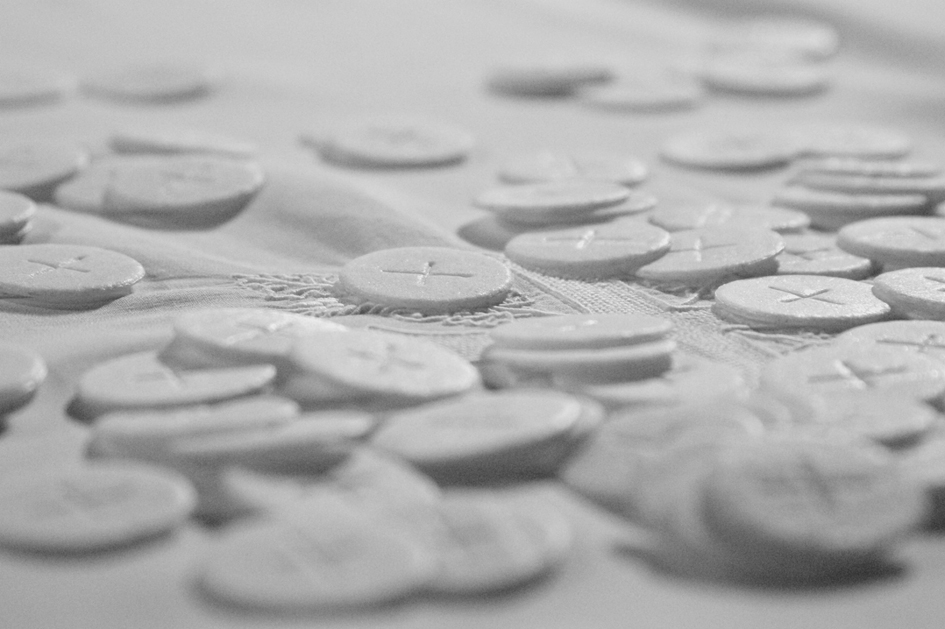“For as often as you eat this bread, and drink the cup, you proclaim the Lord’s death, until he comes.”
We sometimes speak of Holy Communion as being a “memorial.” We use this language because Jesus himself said that we are to “do this in remembrance of him.”
This is, I think, dangerous in our context because we have a weak understanding of what exactly constitutes “remembering.” We say we remember something when we recall it. When we think about it. Even if just for a moment we bring it to mind, we say we “remembered it.”
As if we forget Jesus until we gather at the Altar and remember him.
How many sermons have been preached on this, reminding congregations that remembering is literally broken down as re-member? The opposite of dis-member.
Many, but still I don’t think enough.
If the Eucharistic action is reduced to a simple recollection of Jesus, well then, let’s forget about it. There are lots of ways to remember Jesus. Perhaps even better ways than a little piece of dry pressed bread and a sip of cheap wine. (Or, grape juice…)
Paul helps us out by expanding on Jesus’ words, and in the process gets us going in the right direction. He says that in this Sacred Meal, in eating the bread and drinking of the cup, we proclaim the Lord’s death until he comes.
It’s not just a memorial, a quick recollection. It’s a proclamation. And, even more it’s a proclamation of Jesus’ death – but not just any death.
I’ve been shaped this year by Brian Blount’s terrific book “Invasion of the Dead,” where he talks about death in the Bible in general, and in the New Testament in particular, as a “relative” thing.
Culturally, we think of death as permanent. You’re dead, and that’s that. But, with Jesus death is relative. We see it in Paul’s words: “We proclaim the Lord’s death until he comes.”
Until he comes? Yes, because the death we are proclaiming didn’t hold onto Jesus for eternity. He rose from the dead, and he’s coming again.
He died, but that wasn’t the last word on the subject. The story has another chapter.
As such, when we gather to break bread and share the cup, our gathering, the meal, the assembly, the prayers, the elements – the whole thing – becomes a re-membering of Jesus and the proclamation of his death, that was devastatingly real, but which was conquered nonetheless.
When we can lace our celebrations of Eucharist, and especially in this Holy Week, with that…well, we’re doing a lot more than just not forgetting our Lord.
